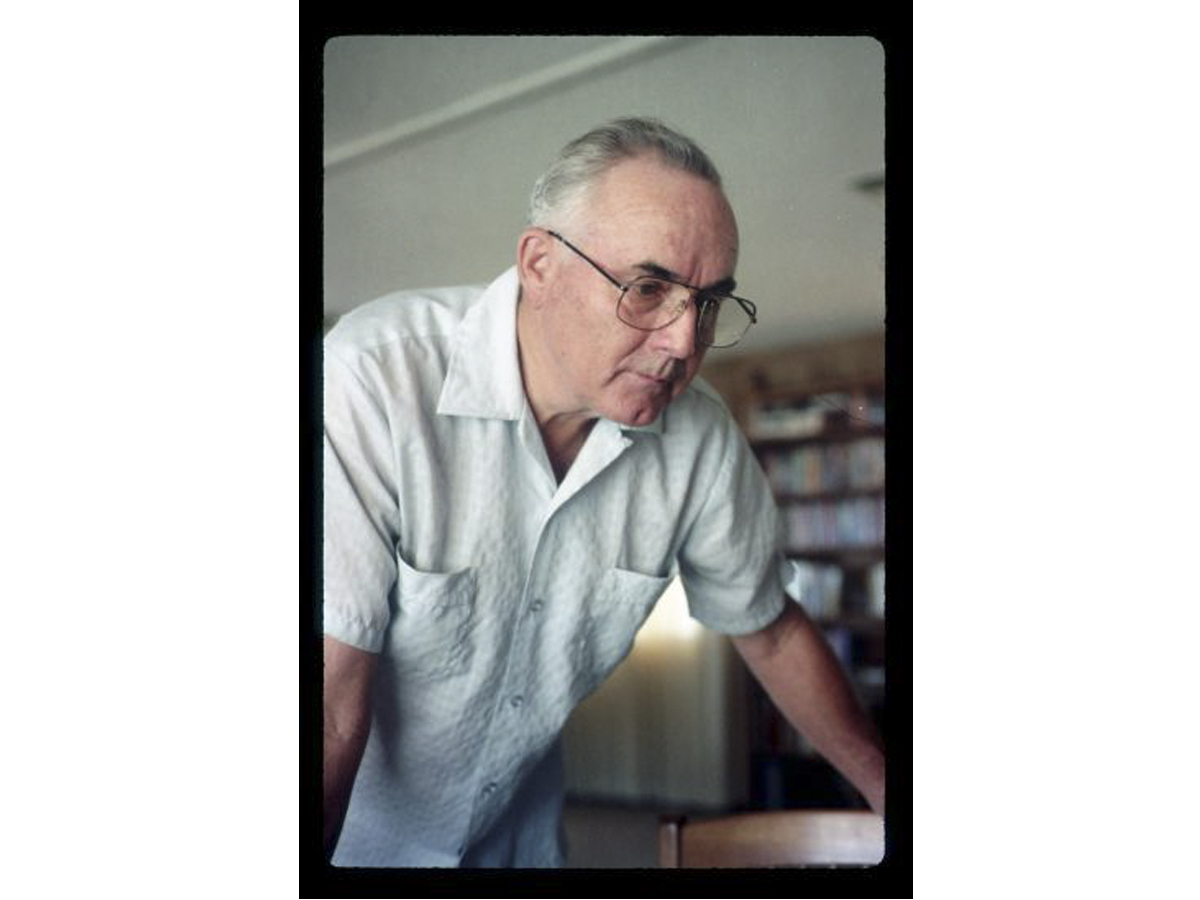
Professor Emeritus of Zoology Wilbur “Bill” Mayhew, founding faculty member of both UC Riverside’s biology department and the UC Natural Reserve System (NRS) — the world’s largest university-administered natural reserve system — passed away on Sept. 19 at the age of 94.
Mayhew first applied for a job at UC Riverside in 1953 and was hired as a parasitology instructor in 1954. Described as a dedicated teacher, Mayhew developed close bonds with his pupils. Many of the courses he taught “were small enough that you easily were able to learn the names of the students,” he said in an oral history interview conducted in 1998. “I always did that. I wanted to be sure I knew who they were and that I could talk to them.”
One of the students he influenced included Patricia Lock-Dawson. “I was planning on going to medical school … and then I took Dr. Mayhew’s vertebrate field biology class and it changed my life,” she said. “I became a wildlife biologist and it was all because of him.” Mayhew would go on to teach 5,600 students during his time at UCR before retiring from teaching in 1989.
During the course of his teaching, Mayhew discovered another passion: land conservation. He became troubled when he noticed “one after another of his field sites disappearing under housing developments,” said Biology Professors Emeritus Mary Price and Nick Waser. Mayhew had already acquired land for the university, including 160 acres where the “C” is located in 1964, and 17,000 acres that he converted into Philip L. Boyd Deep Canyon Research Center in 1958, but he did not believe these were enough.
Mayhew and two of his colleagues, Ken Norris of UC Santa Cruz and Mildred Mathias of UCLA, channeled their discontent into creating the UC NRS in 1965 to preserve land for teaching and research. Starting out with 130,000 acres, the NRS has since grown by more than 756,000 acres and is comprised of 39 sites, 16 of which Mayhew helped acquire. Today, the reserve is used annually by thousands of researchers from all over the world.
After securing a tenured position in 1969, Mayhew decided to devote himself entirely to land acquisition at the cost of delaying his own research. He concluded “that he could make more of a positive impact by protecting California’s wildlands for research and teaching … than by publishing more research papers,” said Price and Waser. Mayhew’s colleagues certainly admired his perseverance. “Bill was indefatigable, despite a cost to his own professional advancement,” they said. “He infected many a donor … with his enthusiasm, outgoing nature and clear vision.”
He also established the Mayhew Graduate Research Award in 1996, which helps fund graduate research at Boyd Deep Canyon, and received the George B. Fell Award from the Natural Areas Association in 2003.
Mayhew’s legacy, however, is difficult to quantify. “It will continue to grow as the UC Natural Reserve System contributes to a greater quantity and variety of research,” said Jennifer Singleton, a biology graduate student who received the Mayhew Graduate Research Award in 2013. Traces of his impact can be spotted in other, less expected areas as well. “My youngest daughter at age eleven now wants to be a wildlife biologist,” said Lock-Dawson. “None of that would have happened without him.”
Wilbur Mayhew lives on in the lives he touched. “He opened a whole world to me,” said Lock-Dawson. “He opened the environmental world, the outdoor world (and) the natural world. He created a love of it that never has gone away.”
In the eyes of biology professor Kimberly Hammond, his influence has also left a more visible mark. “Every time the students look up at the ‘C,’ they should think of Bill,” Hammond expressed.








